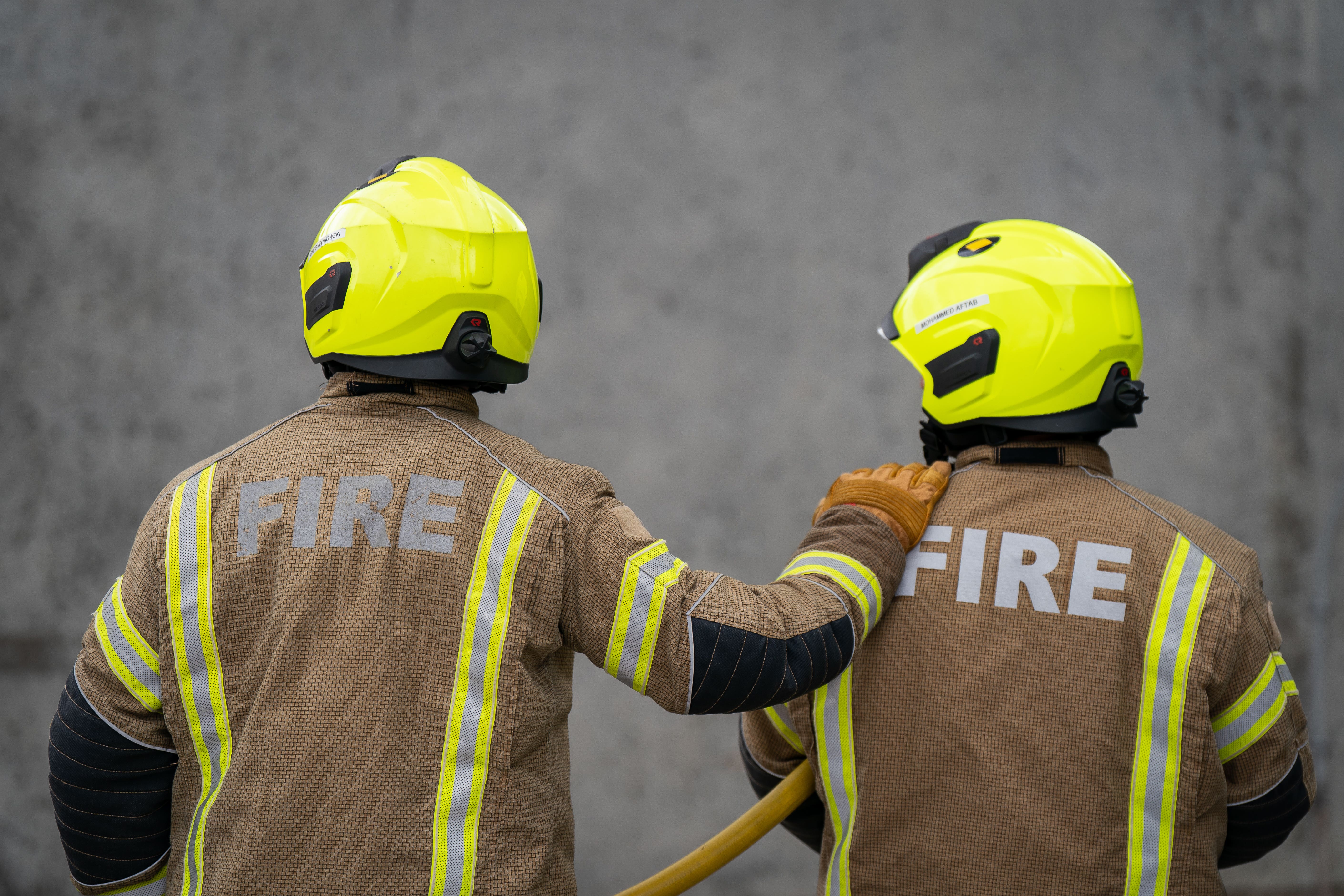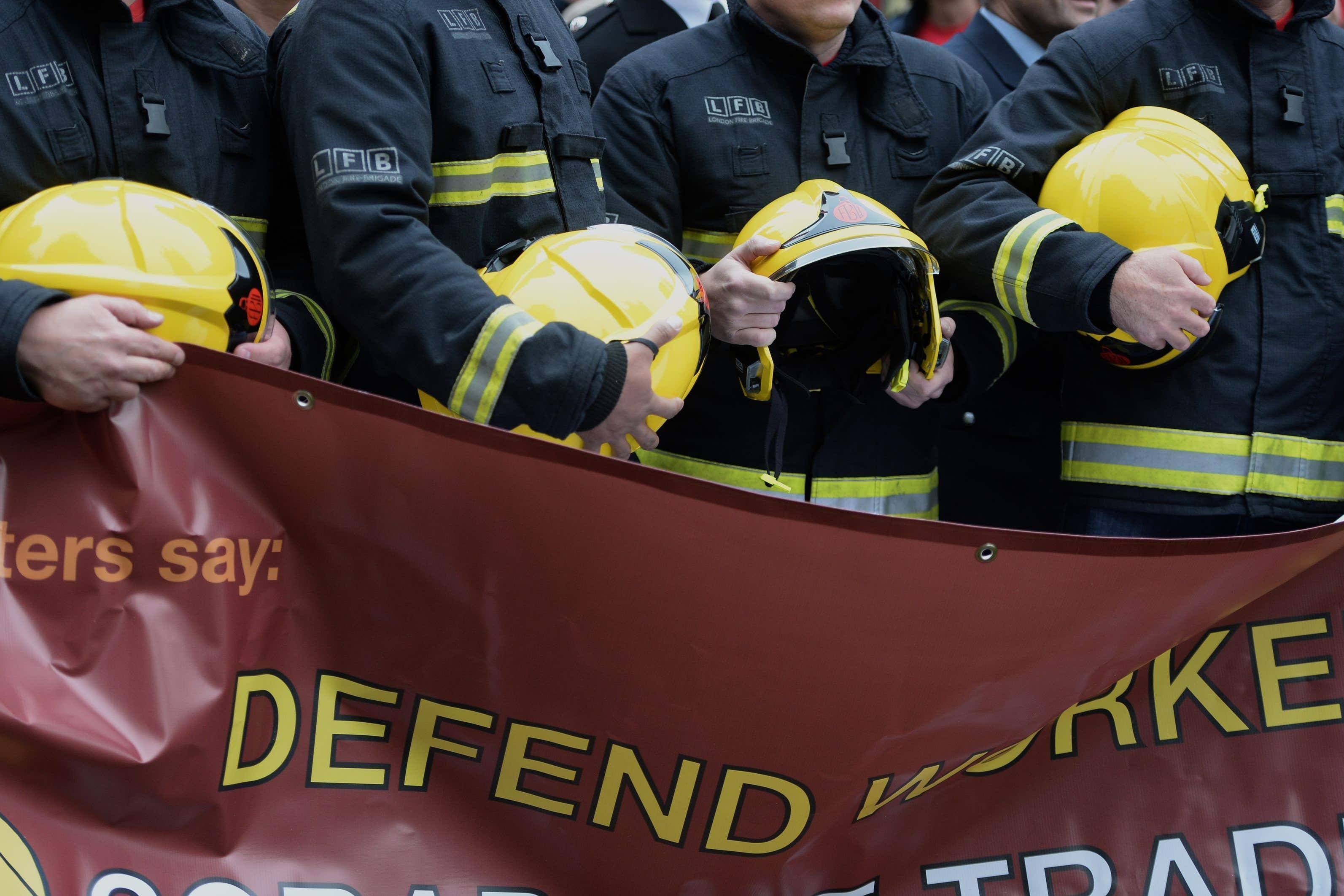Army to be drafted in if firefighters vote to strike
Exclusive: RAF base to be used for troops and fire engines if FBU votes for action, The Independent can reveal

The military is being called in to cover for an expected strike by firefighters, despite warnings that troops should not be treated as “spare capacity” for a wave of industrial action by public services.
The Fire Brigades’ Union (FBU) is balloting more than 33,000 firefighters and control room staff after they rejected a “derisory” 5 per cent increase, with the vote closing on 30 January.
Ministers are so certain that firefighters will strike that preparations have already started to organise the deployment of British Army personnel and private contractors.
The Independent understands that an RAF base on the outskirts of London will be used for soldiers and fire engines.
A further 27 appliances will be seized from the London Fire Brigade to be held at an undisclosed location, and staffed by a private company.
FBU general secretary Matt Wrack told The Independent: “Using untrained armed forces personnel and private contractors to operate highly specialised fire and rescue service appliances and equipment seriously compromises public safety.
“The responsibility for this mess lies with government ministers and with fire service employers.”
If a national fire strike is held, it would be the first of its kind since pension action between 2013 and 2015 and the first on pay since 2003.
Mr Wrack said the government had “refused to make funding available for a decent pay offer to firefighters and control staff” and said it was “outrageous” that the dispute had been ongoing for eight months.
“The answer is for fire service employers to urgently make a new offer to significantly increase the pay of all firefighters across the country,” he added.
Around 1,200 troops were deployed to cover for striking ambulance workers and Border Force staff over the festive period, with unions again warning that they were not sufficiently trained for the work.
Members of Britain’s armed forces are legally barred from striking, as are the police, and the government has drawn up new laws that would mandate “minimum service levels” for firefighters, the NHS, transport, education and border security.
There is significant opposition to the law, and the Conservative Party is encouraging its MPs to characterise Labour attacks as a defence of their union “paymasters” in the ongoing political battle.
The head of Britain’s armed forces issued a warning to the government last month, saying the military should not be treated as “spare capacity” for a mounting wave of industrial action.
Chief of defence staff Admiral Sir Tony Radakin said the military needed to focus on its primary role as the Ukrainian war continues to rage.
“We’re not spare capacity, we’re busy and we’re doing lots of things on behalf of the nation,” he told The Sunday Telegraph. “We’ve got to focus on our primary role.
“It would be slightly perilous to rely on defence to be doing all of these things as the ultimate backstop.”
The numbers to be drafted for the expected FBU strike are not yet known, but 750 troops were previously assigned to the ambulance strike and more to a walk-out by 1,000 passport workers.
Earlier this month, the national fire watchdog issued a report saying the government needed to reform fire services “as a matter of urgency”.
HM Inspectorate of Fire and Rescue Services said ministers, councils, fire chiefs and unions should reduce the risk of industrial action by “working together to consider reforming structures for negotiating pay, terms and conditions”.
Chief Inspector Andy Cooke added: “The fire service faces a difficult year ahead against the backdrop of industrial action. Some may see these challenges as a reason not to risk further change.

“On the contrary, reform of the fire service is still urgently needed – and until all our recommendations are addressed in full, fire and rescue services won’t be able to provide the best possible service to the public.”
Almost all fire chiefs told the inspectorate of concerns that financial pressures and the cost of living crisis were affecting the service they could provide, and making it more difficult to recruit and retain firefighters.
But the report warned that industrial action also posed a safety “challenge” and could have an impact on how quickly incidents can be responded to.
The watchdog said previous recommendations for national reform had not been implemented, including a call to review how effectively firefighters’ pay and conditions are determined.
A Home Office spokesperson said: “Setting firefighter pay is the responsibility of employers, working through the National Joint Council; the Home Office plays no role in the negotiation or funding of firefighter pay.
“We thank firefighters who work tirelessly to protect our communities and are committed to ensuring fire and rescue services have the resources they need to keep us safe.”






Join our commenting forum
Join thought-provoking conversations, follow other Independent readers and see their replies
Comments